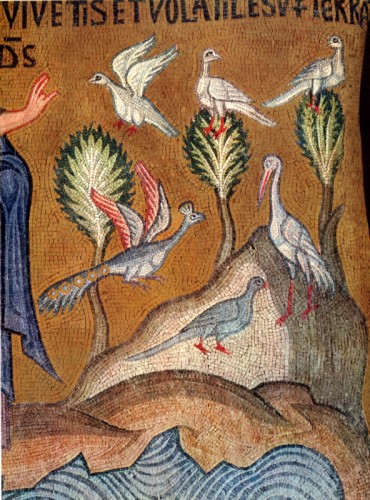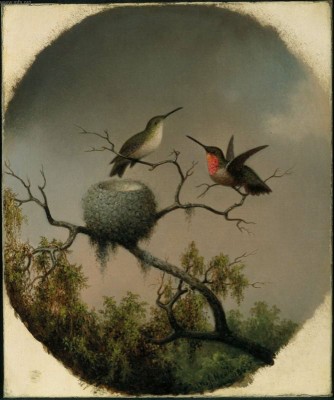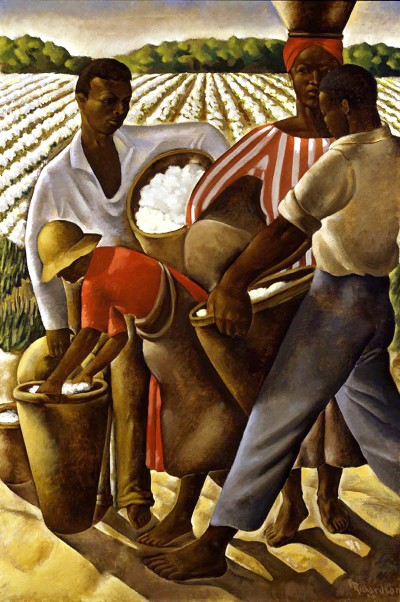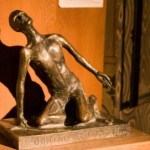 Midsummer. The longest day comes, bearing sweet fulfillment everywhere, and also sadness that the fullness of time is ending, that days will grow less, the sun will pull away and the dark will draw nigh.
Midsummer. The longest day comes, bearing sweet fulfillment everywhere, and also sadness that the fullness of time is ending, that days will grow less, the sun will pull away and the dark will draw nigh.
And for Jesus, too, the longest day has come, the bittersweet day when he sets his face toward Jerusalem. The reaping of joys is past now, and the road winds down into a gathering dark ahead of him.
It is a hinge time, as are the days on which the earth turns, the equinoxes of time.
Luke tells us Jesus meets immediate resistance, first from the Samaritans, despisers of Jerusalem and the temple culture, who had been cheering Jesus on. Now that he will go there, they turn away. And then his own friends ask about the uses of rage as a reply. He silences them. He will walk on to much more outrageous responses than this slight snub. And he will halt their anger then, too
Instead of anger, Jesus gives us three sweet, short wisdom sayings, sayings for hard times, sayings that reflect his sorrow that the sweet and full times are over and time itself is growing short. Sorrow, that what lies ahead will be difficult, and he must set his face into the cold wind of it.
Each saying has midsummer in it, the sweet fulfillment, and also some of the chill of hard times to come. Each is given to someone who encounters him on the road. Each is a rebuff of sorts. And an encouragement.
 Foxes have holes, and birds of the air have nests; but the Son of Man has nowhere to lay his head.
Foxes have holes, and birds of the air have nests; but the Son of Man has nowhere to lay his head.
Let the dead bury their dead; but go thou and preach the kingdom of God.
No one, having put his hand to the plow, and looking back, is fit for the kingdom of God.
No sayings of Jesus roll more easily off the tongues of Christians than these.
Foxes and birds work at a feverish pace, against terrible odds, to sustain a merely temporary shelter for a brief season. They do this in order that the hope of life may continue in their young, as they wear themselves out in their fight for survival And Jesus says that is more shelter than he has.
The burden of death and of the dying can be a distraction from the hard work of hope by which the kingdom is built. Do not, he warns, turn aside for distractions of memory, when hope’s vision lies in another direction.
 And the hard, hard work of the plow is the only way to the fruitfulness of the field. Poor men, for whom the field’s fruitfulness means the difference between life and starvation, will tie themselves to the plow, pushing furrows through the soil by sheer will and strength born of far more than muscle.
And the hard, hard work of the plow is the only way to the fruitfulness of the field. Poor men, for whom the field’s fruitfulness means the difference between life and starvation, will tie themselves to the plow, pushing furrows through the soil by sheer will and strength born of far more than muscle.
This is not the usually palliative advice given for facing hardship: whistle a happy tune; think positive thoughts; practice being up.
Jesus offers what he himself needs: a mix of recognitions, that our work will be hard, and that the kingdom comes from this work; that we can do it, if we keep our hand on the plow.
For a decade now it has been the fashion to front load Christian worship with praise and thanksgiving, the happy tunes of Christian faith. Before that it was the custom to open services with a hymn of praise and move swiftly into breast-beating confessions.
Perhaps we would be better served, and serve better, if we followed Jesus’ wisdom in how to prepare. Perhaps we could open our services, the hinges of weeks, and the day that offer us the chance to renew our vision, with a clear acknowledgement that faithful work is hard and our weariness long, the shelter can be hard to find in a harsh world, and that we are tempted to live among memories of the past rather than move into the untamed future.
 Keep Your Hand on the Plow, the slave song that held the Civil Rights Movement to its task of confronting the hard-hearted Jerusalem this nation was, might be the kind of opener we need. For people do come to church wary as foxes, determined as mother birds, overwhelmed by works and grief, and weary as field hands. And we do need encouragement to keep on moving, despite our fears, into an expression of the grace we need, preparing ourselves to hear preaching about the difficult road to kingdom.
Keep Your Hand on the Plow, the slave song that held the Civil Rights Movement to its task of confronting the hard-hearted Jerusalem this nation was, might be the kind of opener we need. For people do come to church wary as foxes, determined as mother birds, overwhelmed by works and grief, and weary as field hands. And we do need encouragement to keep on moving, despite our fears, into an expression of the grace we need, preparing ourselves to hear preaching about the difficult road to kingdom.
Julia Esquivel, Guatemalan poet, prays this way:
Jesus said,
“You ought always to pray and not to faint.”
So we do not pray for easy lives;
we pray to be stronger women and men.
And we do not pray for tasks equal to our powers,
but for power equal to our tasks.
Then, the doing of our work will be no miracle
– we will be the miracle.
Every day may we wonder at ourselves
and the richness of life
which has come to us by the grace of God. Amen.
____________________________________________________
Illustrations:
1. Creation Day 5. Mid 12th c. Palermo, Italy.
Vanderbilt Divinity School Library, Art in the Christian Tradition
2. Fox in a Hole. Flickr Share Page Image.
3. Hummingbirds. Heade, Martin Johnson, 1863. Museum of Fine Arts, Boston.
Vanderbilt Divinity School Library, Art in the Christian Tradition.
4. Employment of Negroes in Agriculture. 1934. Richardson Earle. Smithsonian American Art Museum, DC. Vanderbilt Divinity School Library, Art in the Christian Tradition.











